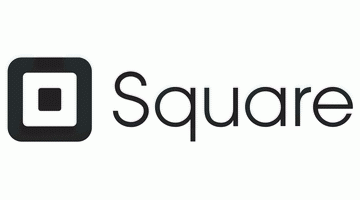Updated on November 22, 2021
Are you scrambling around after the recent breach at Equifax to find out if your identity has been stolen? Are you wondering about the next step to take in case of identity theft? If you are among those whose data were accessed by cybercriminals, then you would have raised your hand.
However, if you are not one of the 143 million, you might also want to take some precautions. You might be one of the millions of folks whose data are stolen earlier from online history. However, if you have a social security number, you’ve run a credit check, or have a pulse; you need to listen because of two important words: identity theft.
What could happen?

- They can open financial accounts
- Apply for credit cards, mortgages, and other financial services
- They can get medical care at your expense
- They can likewise file for a tax refund in your name
- Get a job in your name and let you pay the taxes
- Steal your benefits
- All of the above (aka, identity theft)
Who is impacted?
The better question might be who is not impacted? You do not need to worry about verifying if your data was stolen- just assume it was stolen. This is a good rule of the thumb before the Equifax breach, but if you did not think that way, it won’t be possible to ascertain if you have been impacted at the moment.
Right now, the Equifax verification site is not returning accurate information. And if you attempt to call the company, there is likelihood that you will encounter some long waiting times to receive frustrating answers. However, if you want to act quickly which we recommend, bypass the first few stages of grief and go straight to the acceptance.
What we do know: Most of the people affected by the breach are from the United State, but there are some from Canada and UK. Method that works in each country varies, so take note that this article is for readers from US. Readers from other countries can find additional information about the right step to take here.
Steps to protect yourself
What we recommend is that you freeze your credit right now with all the major credit bureaus. By freezing your credit, criminals won’t be able to open new account with your name and your credit card will still work. However, you will have to unfreeze your credit if you need to apply for a loan, open a new credit card, or make purchases that require a check on your credit.
Here are three things you need to know before contacting the credit bureaus.
The first one is that you would want to pull a credit report which you can get for free here regardless of whether you’ve already frozen your accounts; it can still be monitored with the aid of free tool. It is recommended that you pull only one report now, another one after four months and the third one in another four months. It’s not foolproof, but with this you will be able to see the different reports throughout the year and tracking any changes would be easy.
The second one is minimal cost. Although reports have varied – Equifax is offering their credit freeze for free, but it is very difficult to get to them. The freezing credit is $10 per bureau and it is paid only once amounting to 20 or 30 dollars for the peace of mind.
Three: You have to set or receive PINs when freezing your credit which you have to save in a secure location whether in the password manager or in a printed device in a safe place.
Where to go to freeze your credit
- Equifax: (800) 685-1111 or https://www.freeze.equifax.com/
- Experian: (888) 397-3742 or https://www.experian.com/ncaconline/freeze
- TransUnion: (888) 909-8872 or https://freeze.transunion.com/
- Note: their phone prompts move quickly, so have your newly thought-up PIN and credit card information readily available.
- Innovis: (800) 540-2505 or https://www.innovis.com/securityFreeze
Additional monitoring services
You can also decide to use additional monitoring service if you like. The issue is that scammer companies that are trying to trick and legitimate companies that are trying to help will hype the danger of identity theft so as to make sales. Please ensure that you do your research very well before signing for any one of them because of fear.
When you are searching for information on the right way to protect yourself in this scenario, ensure you visit sites like the Federal Trade Commission or any other technology publications like The Verge, Wired or Vice’s Motherboard, because they won’t try to upsell you to credit protector which you might not need. You might be hurt by the wrong company when trying to protect yourself against identity theft.
General best practices
Our wish is to tell you that the advice given above will save you from all the danger associated with this breach. You are covered for credit theft, but for other threats that are associated with fraudsters or scammers who are looking for way to capitalize on this situation, by following these additional guides, you would be able to avoid their traps.
Scams
Be ready for credit scams or other related terms. These would be seen in emails, social sites or games, ad on, and also physical mail sent to your home. These kinds of attacks are referred to as social engineering, and they will continue to run for months and years to come. You also need to ask about things you are not sure about from professional.
Text or phone scams
Because your data were most likely taken, that implies that your number will be shared more than they are today. Texts and call from unknown numbers, numbers with the same area codes, or numbers similar to your own should be treated as potential scams.
You might be of the opinion that you would be protected by the National Do Not Call Registry. It only offers protection from legitimate companies that are trying to solicit your business and not against scammers. (Because criminals won’t follow law)
my Social Security account
With the account of my Social Security, you will be able to track social funds that you will be collecting in the future. Although it wasn’t affected by the Equifax breach but it is good to set up this account with your name because someone else can access it and you won’t be able to get your future payments. Note that if you want to set up this account, you have to do it before you freeze your credit. Otherwise they won’t be able to confirm your identity through the account.
Passwords and two-factor authentication
Make sure you are using a smart password strategy (complex, do not repeat them, and make sure you do not use the same password across many sites, etc.) and enable two-factor authentication (2FA) on every account if the option is available. The availability of 2FA on your site and service can be checked here.
Enable alerts on your accounts
Although your current account might not be affected by this breach but it is a good idea to keep an eye on your bank accounts as well as credit cards for larger purchases. For accounts that are used occasionally, you can set alerts to $1 so that you will be notified immediately in case of any transaction. For regular accounts, setting the alerts to a dollar would be inappropriate whether it’s $20 or $500.
New phone accounts
A common attack with credit or personal data breach is aimed at purchasing new phone accounts through your provider, using your account! Once they have the information, they will call up the phone company and say they do not have PIN number but want to add a new line. They won’t be able to verify your account if you have not set a PIN number with your phone company. So that is a new phone on your bill and so as to protect yourself from this kind of attack, go straight and set up a PIN with your service provider.
Taxes
Make sure you file these as soon as you can next year! We’ve heard about victims of tax return fraud for several years, whereby a scammer will file your return with your personal information before you can. Do not wait until this is done.
Summary
Those that are affected by the Equifax breach have a high risk of becoming victim of identity theft. But the point is moot at this junction, since it is hard to get a definitive answer; it is best to assume you are and address the fallout.
We have provided some information on how to avoid identity theft and credit fraud, and we hope you would do every necessary task to keep your personal information. A new credit card created by a criminal with your name will give you a lot of challenges. It is better to stay ahead of this situation than trying to convince your bank that you did not open an account. Good luck, stay safe and be vigilant.

